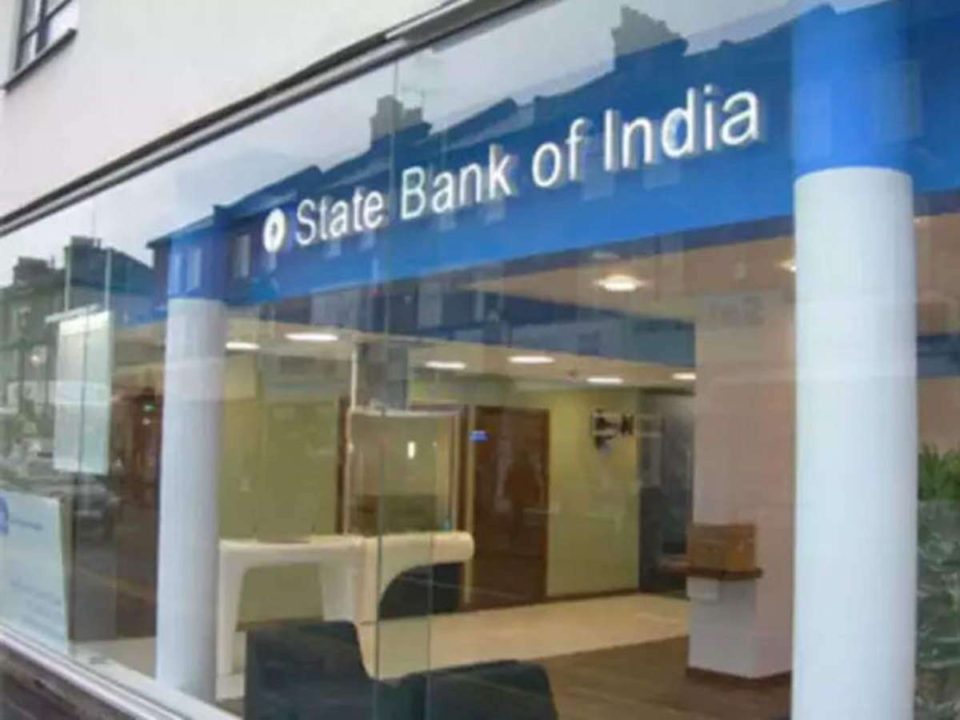In recent months, the impact of the coronavirus pandemic has forced people to stay indoors and process online transactions. Meanwhile, the number of online frauds has also spiked. State Bank of India (SBI) has alerted its account holders of potential phishing attacks. 73.5 million SBI customers are using internet banking facilities, while about 17 million are using mobile banking services. SBI said in a tweet, “Beware of the Phishers! Be cautious about all communication you receive on the internet. Follow these simple security measures to stay safe.”
What is phishing?
A victim is unsuspectingly approached using fake emails, websites and is made to enter sensitive information like login and other details such as an address, contact number, and date of birth that can be used to profile them. A user is led to a fake website upon clicking on an email or a web link that appears to be genuine but isn’t.
DO’s:
1. Examine the downloadable file or attachment from unverified entities or sources before opening them.
2. Check the validity of the sender’s email ID before revealing any sensitive information.
3. Protect your browsing with antivirus, antispyware, and firewall software.
4. Routinely check for browser updates and enable phishing filters.
DON’T’s:
1. Don’t reply to emails or messages on social media platforms from unreliable sources.
2. Don’t use a company email address for personal purposes.
3. Don’t click on links claiming to offer a prize.
As of June 20, the government had warned of a significant upcoming phishing attack that promises free COVID-19 testing across India. SBI had issued an advisory saying, “The cybercriminals are claiming to have a 2 million individual/citizen’s email IDs and are planning to send an email with subject “Free COVID-19 Testing” inciting personal details from the residents of following cities: Delhi, Mumbai, Hyderabad, Chennai, and Ahmedabad.”
RELIANCE 1,285.40 -15.95 (-1.23%)  TCS 3,657.70 +26.15 (0.72%)
TCS 3,657.70 +26.15 (0.72%)  HDFCBANK 1,821.45 +20.30 (1.13%)
HDFCBANK 1,821.45 +20.30 (1.13%)  HINDUNILVR 2,270.70 +14.55 (0.64%)
HINDUNILVR 2,270.70 +14.55 (0.64%)  INFY 1,631.70 +39.50 (2.48%)
INFY 1,631.70 +39.50 (2.48%)  HDFC 2,729.95 -17.05 (-0.62%)
HDFC 2,729.95 -17.05 (-0.62%)  BHARTIARTL 1,733.70 +15.40 (0.90%)
BHARTIARTL 1,733.70 +15.40 (0.90%)  KOTAKBANK 2,170.85 -7.50 (-0.34%)
KOTAKBANK 2,170.85 -7.50 (-0.34%)  ICICIBANK 1,344.40 -13.80 (-1.02%)
ICICIBANK 1,344.40 -13.80 (-1.02%)  ITC 409.90 -1.05 (-0.26%)
ITC 409.90 -1.05 (-0.26%)  BAJFINANCE 9,071.60 -23.30 (-0.26%)
BAJFINANCE 9,071.60 -23.30 (-0.26%)  MARUTI 11,897.30 -25.55 (-0.21%)
MARUTI 11,897.30 -25.55 (-0.21%)  HCLTECH 1,626.25 +22.15 (1.38%)
HCLTECH 1,626.25 +22.15 (1.38%)  SBIN 773.05 -8.35 (-1.07%)
SBIN 773.05 -8.35 (-1.07%)  NESTLEIND 2,255.55 -7.80 (-0.34%)
NESTLEIND 2,255.55 -7.80 (-0.34%)  ASIANPAINT 2,330.35 +8.35 (0.36%)
ASIANPAINT 2,330.35 +8.35 (0.36%)  WIPRO 271.10 +1.70 (0.63%)
WIPRO 271.10 +1.70 (0.63%)  DMART 3,998.40 +95.40 (2.44%)
DMART 3,998.40 +95.40 (2.44%)  AXISBANK 1,119.60 +21.60 (1.97%)
AXISBANK 1,119.60 +21.60 (1.97%)  LT 3,469.70 -11.40 (-0.33%)
LT 3,469.70 -11.40 (-0.33%)  HDFCLIFE 673.50 -5.90 (-0.87%)
HDFCLIFE 673.50 -5.90 (-0.87%)  SUNPHARMA 1,766.00 -19.30 (-1.08%)
SUNPHARMA 1,766.00 -19.30 (-1.08%)  ULTRACEMCO 11,428.05 +377.25 (3.41%)
ULTRACEMCO 11,428.05 +377.25 (3.41%)  ONGC 242.20 -1.55 (-0.64%)
ONGC 242.20 -1.55 (-0.64%)  BAJAJFINSV 1,946.10 +51.30 (2.71%)
BAJAJFINSV 1,946.10 +51.30 (2.71%)  BPCL 279.05 -1.40 (-0.50%)
BPCL 279.05 -1.40 (-0.50%)  POWERGRID 291.15 -0.75 (-0.26%)
POWERGRID 291.15 -0.75 (-0.26%)  TITAN 3,055.15 -23.80 (-0.77%)
TITAN 3,055.15 -23.80 (-0.77%)  BRITANNIA 4,846.30 +49.55 (1.03%)
BRITANNIA 4,846.30 +49.55 (1.03%)  NTPC 367.15 -0.20 (-0.05%)
NTPC 367.15 -0.20 (-0.05%) 
 TCS 3,657.70 +26.15 (0.72%)
TCS 3,657.70 +26.15 (0.72%)  HDFCBANK 1,821.45 +20.30 (1.13%)
HDFCBANK 1,821.45 +20.30 (1.13%)  HINDUNILVR 2,270.70 +14.55 (0.64%)
HINDUNILVR 2,270.70 +14.55 (0.64%)  INFY 1,631.70 +39.50 (2.48%)
INFY 1,631.70 +39.50 (2.48%)  HDFC 2,729.95 -17.05 (-0.62%)
HDFC 2,729.95 -17.05 (-0.62%)  BHARTIARTL 1,733.70 +15.40 (0.90%)
BHARTIARTL 1,733.70 +15.40 (0.90%)  KOTAKBANK 2,170.85 -7.50 (-0.34%)
KOTAKBANK 2,170.85 -7.50 (-0.34%)  ICICIBANK 1,344.40 -13.80 (-1.02%)
ICICIBANK 1,344.40 -13.80 (-1.02%)  ITC 409.90 -1.05 (-0.26%)
ITC 409.90 -1.05 (-0.26%)  BAJFINANCE 9,071.60 -23.30 (-0.26%)
BAJFINANCE 9,071.60 -23.30 (-0.26%)  MARUTI 11,897.30 -25.55 (-0.21%)
MARUTI 11,897.30 -25.55 (-0.21%)  HCLTECH 1,626.25 +22.15 (1.38%)
HCLTECH 1,626.25 +22.15 (1.38%)  SBIN 773.05 -8.35 (-1.07%)
SBIN 773.05 -8.35 (-1.07%)  NESTLEIND 2,255.55 -7.80 (-0.34%)
NESTLEIND 2,255.55 -7.80 (-0.34%)  ASIANPAINT 2,330.35 +8.35 (0.36%)
ASIANPAINT 2,330.35 +8.35 (0.36%)  WIPRO 271.10 +1.70 (0.63%)
WIPRO 271.10 +1.70 (0.63%)  DMART 3,998.40 +95.40 (2.44%)
DMART 3,998.40 +95.40 (2.44%)  AXISBANK 1,119.60 +21.60 (1.97%)
AXISBANK 1,119.60 +21.60 (1.97%)  LT 3,469.70 -11.40 (-0.33%)
LT 3,469.70 -11.40 (-0.33%)  HDFCLIFE 673.50 -5.90 (-0.87%)
HDFCLIFE 673.50 -5.90 (-0.87%)  SUNPHARMA 1,766.00 -19.30 (-1.08%)
SUNPHARMA 1,766.00 -19.30 (-1.08%)  ULTRACEMCO 11,428.05 +377.25 (3.41%)
ULTRACEMCO 11,428.05 +377.25 (3.41%)  ONGC 242.20 -1.55 (-0.64%)
ONGC 242.20 -1.55 (-0.64%)  BAJAJFINSV 1,946.10 +51.30 (2.71%)
BAJAJFINSV 1,946.10 +51.30 (2.71%)  BPCL 279.05 -1.40 (-0.50%)
BPCL 279.05 -1.40 (-0.50%)  POWERGRID 291.15 -0.75 (-0.26%)
POWERGRID 291.15 -0.75 (-0.26%)  TITAN 3,055.15 -23.80 (-0.77%)
TITAN 3,055.15 -23.80 (-0.77%)  BRITANNIA 4,846.30 +49.55 (1.03%)
BRITANNIA 4,846.30 +49.55 (1.03%)  NTPC 367.15 -0.20 (-0.05%)
NTPC 367.15 -0.20 (-0.05%) 




